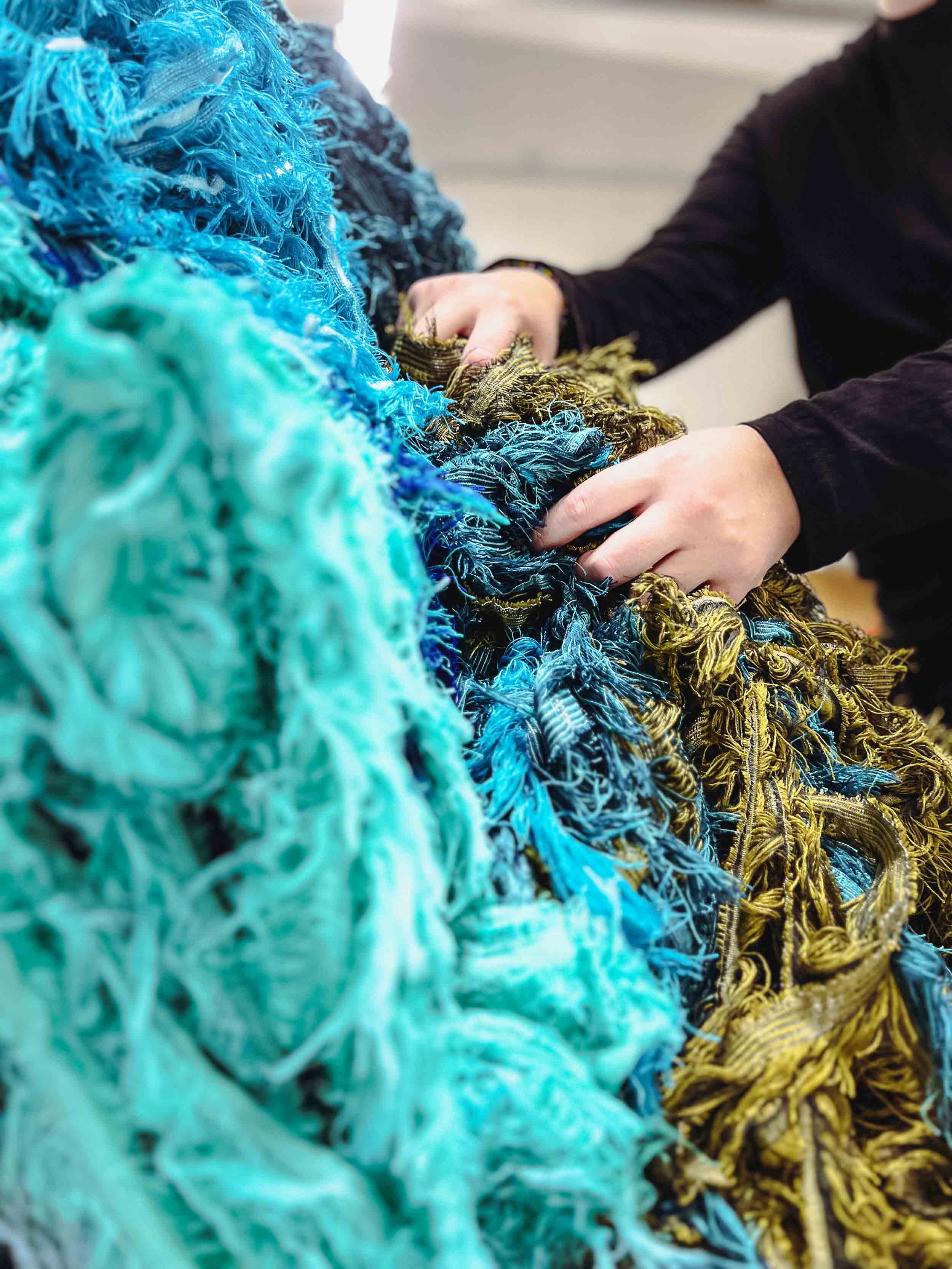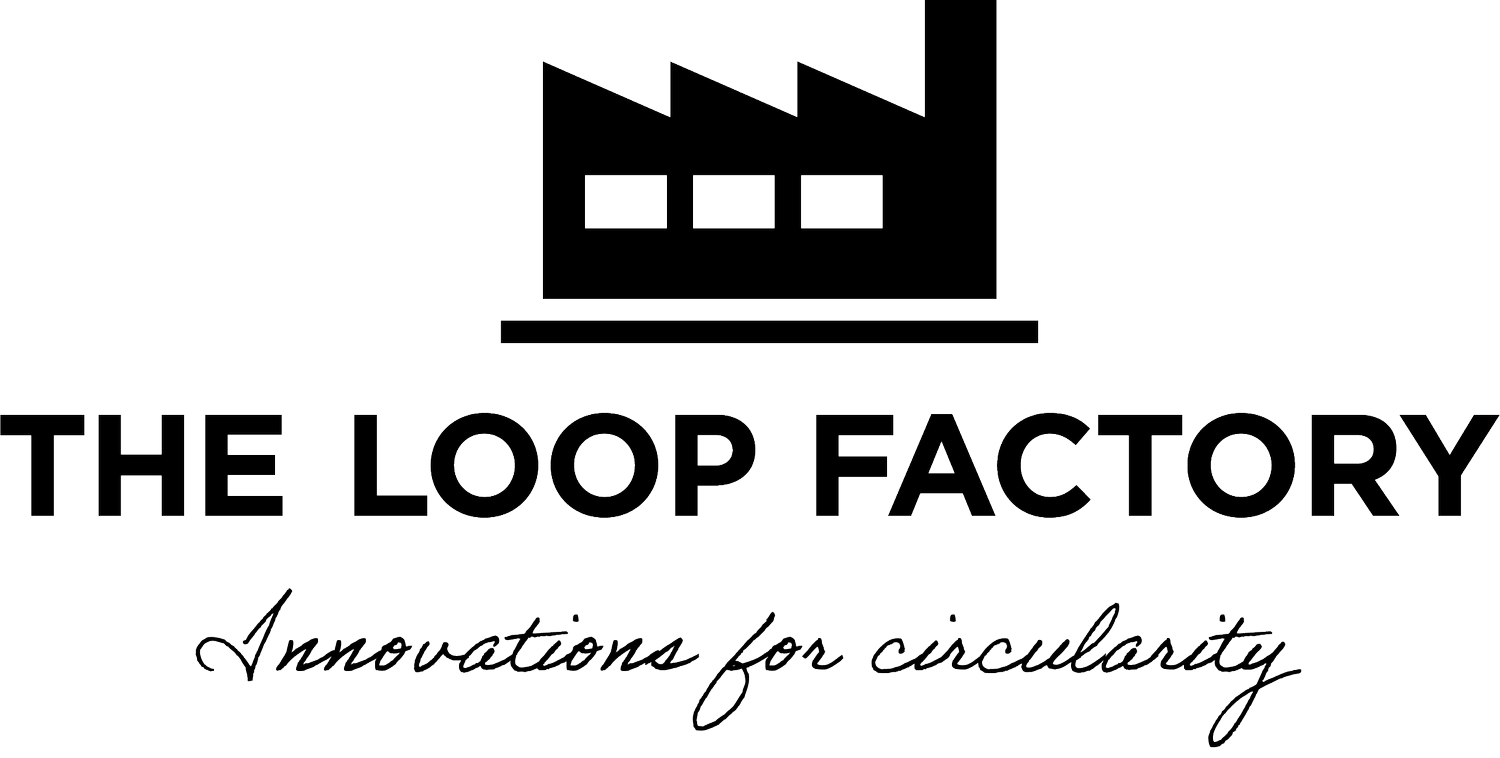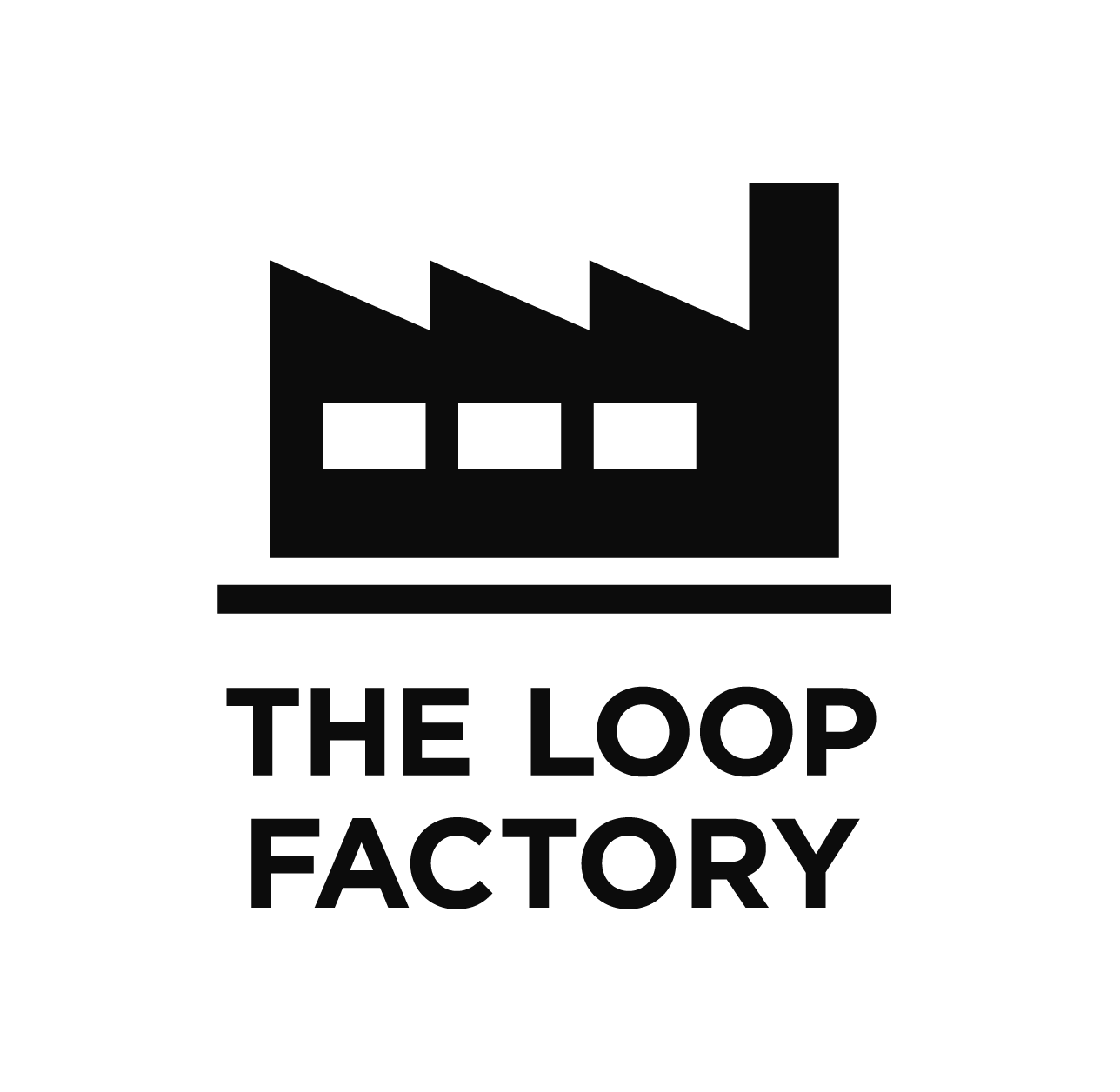
texSCALE
Creating a circular textile industry is a collaborative effort. That is why we formed a collective initiative with different Scandinavian actors in the textile value chain. Together we aim, with funding from the Swedish Energy Agency, to increase the resource-efficient use of textiles by bridging the gap between pilot- and industry-scale nonwoven production.
BACKGROUND
Approximately 9 million tons of textile waste in Europe are incinerated or landfilled annually. This growing environmental challenge is driving the textile industry to adapt, especially as new regulations on waste management, corporate responsibility, and greenhouse gas (GHG) emissions take effect. To stay ahead of these changes, this project aims to lead the way in textile recycling by scaling up efforts and driving systemic change across the industry.
CHALLENGE
Enhancing resource efficiency requires challenging the traditional, linear mindset of the textile industry. This project targets the efficient use of complex textile waste streams and the growing accumulation of post-consumer textiles. We must foster increased collaboration and rethink our current approaches to tackle these problematic material streams.
SOLUTION
This project seeks to enhance the resource-efficient use of textiles and bridge the gap between pilot-scale and industry-scale nonwoven production. It focuses on three key areas: Developing sustainable materials and products. Optimising logistics with sustainability assessments. Empowering the industry to transition towards a circular economy.
RESULT
TexScale adopts a pragmatic, hands-on approach to textile recycling by conducting technical validation through demonstration projects and fostering discussions on industry challenges and opportunities. The primary goal is to enhance resource efficiency in textiles and drive the transformation of the textile industry.
WEBINARS
Webinar 5 - OCTOBER 2025: Innovation, trust, and brand resilience – navigating change with confidence
In today’s fast-moving sustainability landscape, innovation often involves failure, but what defines a brand is how it rebuilds trust. In this webinar, communications expert Maria Starck (Eidra) shared how to lead with transparency, navigate setbacks, and strengthen customer loyalty in the face of growing regulatory and consumer demands. Maria presented practical strategies for building brand resilience, restoring trust after failure, and turning fragile moments into long-term credibility.
View the presentation: In innovation we trust – Building brand loyalty in times of change (PDF)
Watch the recording: In innovation we trust – Building brand loyalty in times of change.
Webinar 4 - june 2025: ESPR and circular textiles – from pilot to product
The EU’s new Ecodesign for Sustainable Products Regulation (ESPR) is poised to transform the design, sourcing, and recycling of textiles. However, many brands remain stuck between ambitious sustainability targets and operational challenges. In this webinar, industry experts from Sysav, Rester, and The Loop Factory break down what ESPR means in practice and how to scale circular materials with confidence. Gain insights from real cases, understand key roadblocks, and explore practical strategies to align your product development with future regulations.
Learn more by reading the article “How ESPR will reshape recycling and sustainability”
View the presentation: From waste to resource_ how ESPR will reshape recycling and sustainability (PDF)
Watch the recording: From waste to resource how ESPR will reshape recycling and sustainability (Youtube)
Webinar 3 - APRIL 2025: Circular strategies in textiles – what are the trade-offs?
Circular strategies are transforming the textile industry - but they come with trade-offs. This webinar explored how to identify unintended sustainability impacts and make better-informed decisions. We also introduced a practical tool to help businesses assess circular solutions across the value chain.
Learn more by reading the article “The effect of trade-offs - Circular economy strategies and their hidden environmental impacts,” designed to deepen your understanding and support your decision-making process.
View the presentation: The effects of trade-offs (PDF)
You can use the Environmental trade-off assistant (Excel) to evaluate circular strategies within your current sustainability projects. This user-friendly tool helps identify environmental trade-offs and can be integrated into your decision-making process to enhance your sustainability assessments.
Webinar 2 - February 2025: The pantry of the future: a guide to effectively using post-consumer textile waste.
Fossil resources are rapidly depleting, while textile waste continues to grow alarmingly. It’s time to rethink how we approach raw materials by creating a sustainable, circular “material pantry” using post-consumer textiles.
Read our summary of the webinar: “Effective textile classification and recycling under new EU regulations”.
View the presentation: A guide to effectively using post-consumer textile waste (PDF)
Webinar 1 - November 2024 : What does the waste framework directive mean for your company, and what do upcoming laws and regulations mean?
On January 1st, 2025, the EU Waste Framework Directive will come into effect, requiring all EU member states to implement separate textile collections. In a webinar, Ulrika Simonsson from TEKO shared valuable insights on what this means for businesses, providing updates on the separate collection regulations, the status of the Ecodesign and Green Claims Directives, and the impact on SMEs in Sweden. This session provided essential knowledge for businesses navigating the evolving landscape of sustainable textile management and regulatory compliance.
Read our summary of the webinar: EU Textile Waste Directive: Key Updates for SMEs in 2025
WHY NONWOVEN?
Nonwoven is a sustainable solution for textile waste management.
Nonwoven technology offers an energy-efficient and versatile alternative for managing textile waste. It is less sensitive to fibre quality and can process even the most complex textile waste streams. By integrating various techniques, this approach enables the creation of new materials from secondary textile raw materials suitable for various applications.
the facts
The project is funded through the innovation program RE:Source by Vinnova, Energimyndigheten and Formas.
Owner: The Loop Factory
Period: 08/2024 – 08/2027
Participants: Artex, Taiga, SYSAV, Rester, TEKO Logistik, RISE, TEKO, Tvätteriförbundet.







